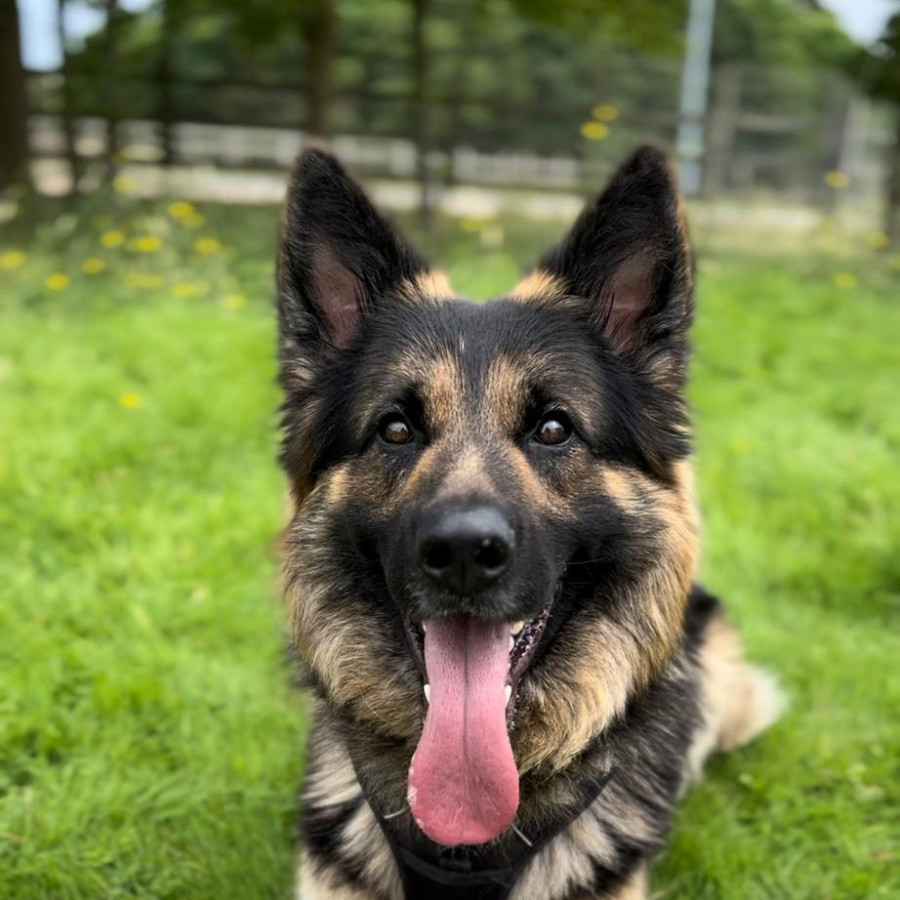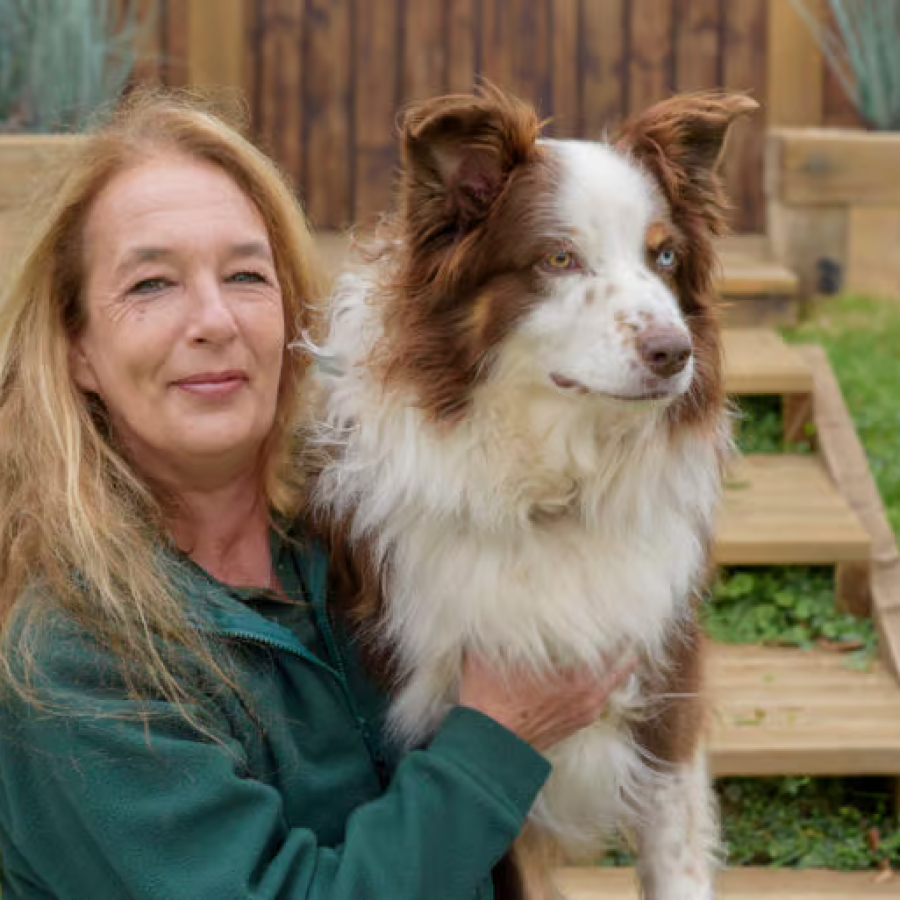
German Shepherd Dog Breed
German Shepherds are loyal watchdogs that love to keep their bodies and brains working overtime.

German Shepherds are loyal watchdogs that love to keep their bodies and brains working overtime.
The German Shepherd is a large loyal active breed. They make
great watchdogs but also have a soft side. They can be highly strung and vocally reactive. They are prone to a few health issues, so it is vital that they live a healthy lifestyle. They require quality socialisation and solid training for them to make a good pet.
If they’re feeling particularly uptight, they’ll bark lots. German Shepherds are prone to certain health issues, so they must live a healthy lifestyle. To make a good pet, they need quality socialisation and solid training.
German Shepherds were originally bred to be herding dogs and to guard their flock. This means they’re naturally suspicious of strangers and will bark at new sights and sounds. Catch them when they’re happy though and you’ll hear them ‘sing’. You’ll never feel alone living with a German Shepherd, they are incredibly loyal, affectionate and loving, so they’ll want to know where you are at all times. This means they may struggle to cope with being home alone unless they’re supported at a young age.
A highly intelligent breed, German Shepherds need to use their brain, so training is a must. They love toys, especially chasing balls and excel at lots of dog sports. Some people find them to be a scary breed, so it’s down to the owner to ensure their dog is always on its best behaviour.
Disclaimer
While these breed traits give a general idea of what to expect from a specific type of dog, it's important to remember that every dog is unique. Just like people, each dog comes with their own distinct personality, quirks, and characteristics!

Very much so! German Shepherds are very loyal and affectionate. They love social interaction with their beloved humans, but they might give strangers the cold shoulder. One of the downsides of living with such a devoted dog is if you live by yourself, this loyal breed might struggle to stay home alone when you have to go out.
Without exposing your German Shepherd to different people and animals in a positive way, your dog might become fearful of new situations. A good level of obedience training, and physical and mental exercise is essential to avoid problem behaviours. Without this training, they can become incredibly frustrated and may bark and lunge at other dogs, cats, vehicles, and people. They are naturally very protective of their home, so managing them around visitors is particularly important.
German Shepherds are used across the world for protection work. If they feel like there's a lurking threat to themselves or their owner, they will do something about it. Remember, dogs and humans will see threats very differently. As they’re such an active breed, a lack of mental stimulation can lead to compulsive behaviours including excessive licking or spinning. With the right training, social interactions, and mental and physical exercises all these issues can be avoided.
All puppies need to learn how to be around people, pets, and other dogs, calmly and politely (known as socialisation). They also need help to feel calm, comfortable, and confident in everyday situations like travelling, the sound of traffic, and being in busy places (known as habituation). This is essential to prevent tricky behavioural problems in the future, and you'll be off to a great start with your ongoing training.
German Shepherds will do anything for a tasty treat or fun toy, so that makes them easy to train. They’re a highly intelligent breed and like to use their brains to solve puzzles and learn new skills. A confident and knowledgeable owner will be able to help them grow into a thriving adult dog.
The key is to start from an early age using kind, fair and effective training methods. A wild adolescent German Shepherd is exhausting and not fun to be around!
Plenty of care and attention should be given throughout training or your German Shepherd could struggle with their self-control to bark and jump. They may struggle on their own and become hostile towards other animals. It’s a good job they love to learn – so you shouldn't have these problems!
It’s sad but true, that German Shepherds are prone to several hereditary diseases. It’s essential you look for respected breeders who health-screen the mums and dads.
Hip Dysplasia is one of the main concerns as well as Epilepsy, Elbow Dysplasia, Degenerative Myelopathy (a disease that affects the spinal cord), and Gastric Dilation Volvulus (bloat).
A decent diet, physical exercise and regular check-ups at the vet will help keep your German Shepherd in tip-top condition.
I was born to be active, so I need to keep fit with regular walks to stretch my legs. I also like to play with my toys.
Please, please give me lots to do! I love to learn new things and really want to impress you with my skills. Problem-solving and puzzle feeders are fun for me.
One of my all-time favourite parts of my police work is tracking criminals. I also enjoy practising my obedience and love all scent games.
Purchasing a German Shepherd puppy will set you back between £700 to over £2,000. The biggest difference between this cost is a non-registered pup whose parents have not been health tested, to a registered pedigree from a breeder who has sorted out all the relevant health checks.
As with any new pet, you should expect to spend a few hundred pounds on things like food, bedding, toys, bowls, collars, leads, a harness and training – everything your dog needs to keep them happy.
Pet insurance is essential, and prices vary, so it’s worth shopping around.
Other ongoing costs include food, insurance, monthly flea and worming control and vaccinations.
Take our quiz to discover which breed is right for you
Take our quizPlease call our pet support line on 0300 303 9333 (7 days a week – 8.30am - 4pm)